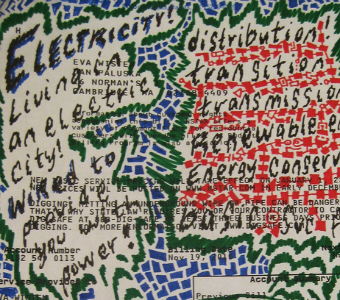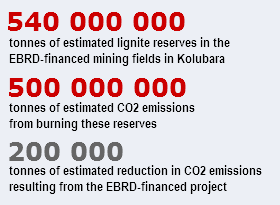By investing in Serbian lignite, the European Bank for Reconstruction and Development cements the rigid structure of the country’s electricity market. Investing in energy efficiency instead could help reduce energy bills and free up further renewables funding.
Nikola Perusic, Campaigner in Serbian Bankwatch member group CEKOR | 16 April 2013

Since March, electricity bills in Serbia include the price of subsidies for renewable energy. One of the leading newspapers, Politika, estimated in March that it will cost households about 16 dinars (15 euro-cents) per month for the average use of 400 kW. Estimations expect that about 10 million euros will be accumulated this way in 2013 alone.
While being welcomed by for example by the Serbian association for windmills, newspaper reports rather painted a negative picture of the additional costs for customers and subsequently of support for renewable energy. Yet, Serbia urgently needs to strengthen green energy investors. At the moment, the country has 37 mini hydro power plants with a merely symbolic output. Also the potential for wind energy still needs to be exploited, partly due to the fact that “[s]tate organized projects in this area were never initiated, as this sector is left for private investors” (Source: Serbia Energy).
More interestingly, however, the critical voices do not argue against the continued support for the dominant coal sector that receives funding from international financial institutions and is planned to be further developed despite the obvious need to increase the share of renewables in Serbia’s energy mix.
An approach that has the interests of Serbia’s consumers in mind would focus on energy efficiency, cutting electricity bills by reducing the still enormous electricity losses – 16% in 2010 compared to 9% (and falling) in neighbouring Bosnia and Herzegovina (2010 World Bank figures). The freed up funds could offer the much needed boost for renewables.
The EBRD’s support for Serbian electricity company EPS and specifically for the Kolubara lignite mine further cements the current structure of Serbia’s electricity market. It fails to increase the wiggle room that innovative private investment in renewable energy in Serbia urgently need.
* Campaign updates are a new feature on the Bankwatch website intended to highlight news from projects we monitor as well as from our member groups and partners.
Never miss an update
We expose the risks of international public finance and bring critical updates from the ground – straight to your inbox.
Institution: EBRD
Theme: Energy & climate
Location: Serbia
Project: Kolubara lignite mine, Serbia
Tags: EBRD | Kolubara | Serbia | coal | consumers | electricity | lignite | price

